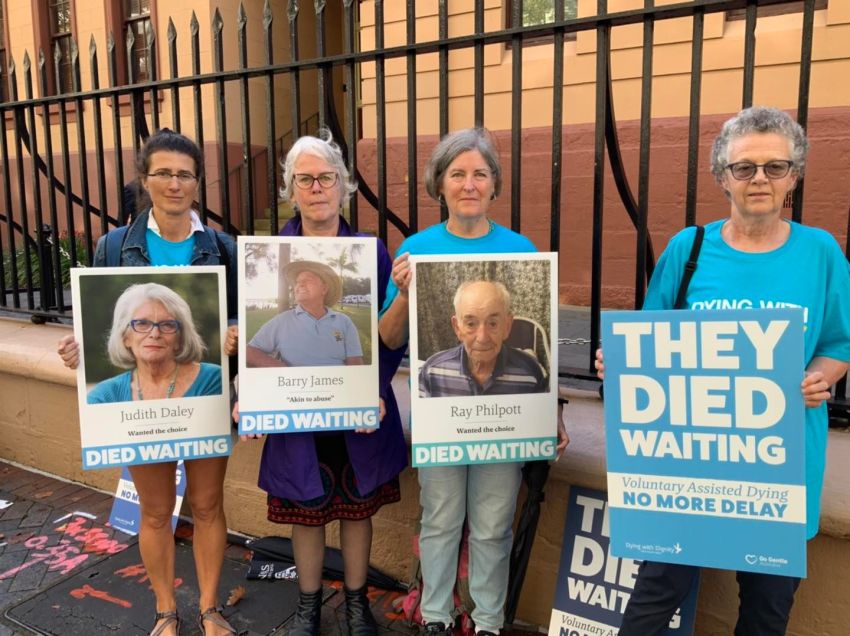
After decades of campaigning and growing public demand, Voluntary Assisted Dying (VAD) became a legal end-of-life option in New South Wales from November 28.
This leaves only the Northern Territory and ACT, which can now follow after the restoration of territory legislative rights last year.
Terminally ill people in NSW are now able to apply for VAD through their doctor under the NSW health guidelines, which sets out the process of application and approval.
The approval process is lengthy, the checks and balances more than robust.
Like any law granting citizens autonomy, ahead of the state’s control over individuals, the long journey to have VAD made legally available across Australia was harder than it should have been.
Penny Hackett, President of Dying with Dignity NSW, said after 50 years of lobbying that VAD’s legalisation brings mixed emotions for most advocates.
“There will be a huge sense of relief and feelings of deep gratitude. But there will also be a touch of sadness, as we remember all of the courageous individuals who shared their stories during the campaign,” Hackett said.
Advocates remain committed to monitoring the process, including how it impacts people in rural and remote areas, or people who are too ill or infirm to travel to the required assessments.
Those assessments are presenting insurmountable logistics for terminally ill, non-mobile applicants, because doctors require the assessments to be done in person — because of an unintended conflict between VAD and a pre-existing law.
Telehealth ban discriminatory
There are two short sections in the Commonwealth Criminal Code that leave VAD doctors open to potential prosecution if they use Telehealth phone, or videoconference, for VAD related consultations.
The Criminal Code Amendment (Suicide Related Material Offences) Bill 2005 amended the Commonwealth Criminal Code Act sections 474.29A and 474.29B to prohibit “the use of a carriage service” to discuss or send suicide related materials.
While VAD law recognises it is not suicide, that is not specified in the Criminal Code and, if it isn’t specified, it is open to legal conjecture. Hence, VAD doctors have concerns.
There is broad agreement it needs amending to remove ambiguity and give the medical profession protection from prosecution and the potential $220,000 fine.
The Australian Centre for Health Law Research at Queensland University of Technology agrees these laws put clinicians at risk, and pose an “immense burden on very sick patients to travel or, if this is not possible, it requires doctors to travel large distances to see patients” causing significant expense and cruel delays for dying patients.
The logistics and expense of the fly-in-fly-out model is unsustainable and removing potential legislative conflicts is a perpetual task.
The good news is this is one of those rare and special reforms that is both democratically supported and quite simple to fix.
To that end, Independent WA MP Kate Chaney told The Guardian on November 13 she will introduce a bill seeking an exemption within the Commonwealth Code, to allow Telehealth to be used for VAD-assisted dying related matters.
The bill, which has long been sought by VAD advocates and the terminally ill, is supported by Independent MP and paediatric neurologist Dr Monique Ryan.
Chaney said she will introduce the Telehealth exemption clause in 2024. It may be a simple change, but the 50-year fight for VAD in Australia may leave advocates wary.
Until the Telehealth exemption is in force, non-mobile terminally ill people are now in the terrible position of finally being allowed to access VAD but being physically prevented from doing so.
For the long-suffering terminally ill, hopefully this small, democratic, request proves as simple as it looks.